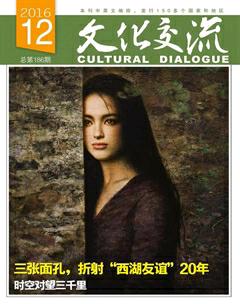精微世界雕出气象万千
徐继宏
精微艺术雕刻由微型雕刻向“精细”“精致”“精巧”“精美”拓展而来。一般说,微型雕刻注重雕,精微雕刻注重刻与绘。精微雕刻最为显著的特点是形巧而艺精、技微而术全,展现的是万千气象、恢宏华章,因此又被称为“神刻意雕”。
日前,笔者走访了浙江省精微雕刻艺术研究会会长、浙江省工艺美术大师李浩先生,一方面感受精微艺术世界“细入毫发,巨纳乾坤”的无穷魅力,另一方面体悟李先生“博采众长,从善如流”的执着追求。
李先生已过不逾矩之年,但言行之中处处有英武之气流溢。他祖籍江西庐山,年轻时参军,在部队待了十数二十年,转业落户到浙江杭州。因为从小受家庭书香熏陶之故,他一入伍就被选拔做宣传员,诗、书、画得到全面发展、全面提高,为日后从事精微艺术雕刻奠定了扎实的基本功。回到地方后,受底蕴深厚广博的浙江金石篆刻传统的影响,李先生一心爱好微雕,他在浙江省高级工艺美术师叶建民先生指导下,用心钻研雕刻通行技艺;之后,又向海子、浙江省工艺美术大师黄厥明学习微书,向四川省工艺美术大师潘启慧学习微画,成就日显。
据李先生介绍,材料是所有雕刻的必备条件,包括金属质地类、矿石质地类、陶瓷质地类、动物质地类、植物质地类等,但必须软硬适中,质地细腻,纯洁无瑕,不涩不腻。他说,他的微雕总以石材为主。为了取材,他每年多次进山采购石材,踏遍了浙江的青田山口、临安昌化和福建的寿山、樟林的山山水水。他与农民交朋友,与同道讲感情,至今与石农保持着密切的联系。
从当初的微雕爱好者,到后来的工艺美术大师,再成为如今的中国精微艺术雕刻领域的翘楚和领军人物之一,李先生用他的勤奋和执著书写了自己的艺术人生。他的微雕作品多次代表浙江参加中国工艺美术大赛并屡获大奖,继2006年《奥林匹克宪章》微刻配北京奥运会吉祥物福娃组章获第七届中国工艺美术大师作品暨工艺美术精品博览会“百花杯”金奖后,又连年获得诸国际艺术博览会、中国艺术博览会、浙江工艺美术精品博览会、中国(杭州)工艺美术博览会金奖。工艺美术界的前辈和同道对李先生的作品多有赞誉,并称他为“金奖专业户”。对此,李先生总是付以淡淡的一笑。
精微艺术常人难以肉眼看见,但同样可以吞吐万象,并有独到技艺,李先生将之当作陶冶情操、修身养性的艺术活动而喜爱、痴迷。他说,不论微书还是微画,不论欣赏还是创作,都能够使人在放大镜、显微镜下感受到中国传统书画、中国传统文化的点线之美、结构之美、章法之美、气韵之美和意境之美。李先生在精微雕刻作品中,把中国传统国学融入不同的创作材料,从孙子兵法、前后出师表,边塞诗到论语、周易甚或诸佛经,他都能娴熟并巧妙地表现。
李先生告诉笔者,精微雕刻,技在微,艺在精。他曾微雕西湖十景组章,把西湖四季美景刻绘于寿山石、青田石、巴林石上,一景一枚,一景一色,一景一形,同时,每枚印章的景略图都配上清代乾隆帝的吟诗,将诗、画、印三者结合展现。
李先生的微雕作品《富春山居图》创作于2011年,时值台北故宫博物院与浙江省博物馆合璧展出元代黄公望的同题巨作。李先生从立题到定稿,从选材到定制工具,从创作到完成,费尽千辛万苦。作品甫一面世,让人叹为观止、赞不绝口:借助显微镜,只见黄公望的山水,董其昌、康熙的书法、印章,均原景、原样呈现,纤毫无损。
李先生的另一件作品《贯休绘十六罗汉图》取清代以前的摹刻版本,用和田墨玉刻绘,面目惟妙惟肖,人物栩栩如生。作品辅以传统的木材作衬托。
李先生自有不俗的艺术眼力和非凡的雕刻定力,但他认为艺海无涯,更无止境,艺术需要不断地探索、丰富和发展。作为精微雕刻艺术的传承人,李先生深知自己的责任,他说,他现在更多的思考是如何把这门精微雕刻艺术传承下去并发扬光大。2015年4月,在他的倡导和努力下,浙江省精微雕刻艺术研究会成立。2016年2月,浙江精微雕刻艺术被杭州市列入非物质文化遗产名录。李先生兴奋地说:“精微雕刻艺术得以薪火相传,要靠一代又一代人去传承、去推动。浙江精微雕刻艺术的春天一定会到来。”
(本文图片由作者提供)
The art of micro-carving refers generally to the engraving of infinitesimal characters on ivory or human hair. It takes an all-rounder artist to excel in the field, as can be seen in the artistry of Li Hao, chair of Zhejiang Microscopic Carving Academy.
In his 70s, the man looks much younger than his age. His ancestral roots in Mount Lushan of Jiangxi Province (famous for its revolutionary tradition) and two decades of army life forged the mans soldierly bearing. The artistic talents of Li Hao, who was born in a scholarly family, were fully demonstrated in his army years. After retiring from military service, Li Hao settled down in Hangzhou, where he immersed himself in the rich seal cutting tradition of Zhejiang and learned a lot from masters such as Ye Jianming and Huang Jueming.
“The selection of raw materials is half of the success of final artworks. Micro-carving can be done on a variety of things, such as metals, ceramics and even plants, but it takes the right hardness and texture, and a high level of purity of the material to ensure the quality of the engraving work. I always prefer stones,” Li explains.
To find the best possible stone for carving, Li Hao spends a lot of time in Qingtian, Changhua in Zhejiang and Shoushan and Zhanglin in Fujian, where he has not only found his “dream stones” but also has made a lot of friends with the local farmers and micro-carving artists.
It is diligence and perseverance that has led the man into the frontiers of Chinas microscopic carving scene. Li Hao is now one of the heavyweight figures in the countrys micro-carving realm. Fame and titles, however, are not what he goes after. The award-winning masters lifetime pursuit is excellence.
“The excitement in appreciating the beauty of Chinese art through the magnifying lens is beyond description. Just imagine how the aesthetic essentials of traditional Chinese arts are arranged into a small piece of stone with all structural details and the entire artistic conception perfectly retained!”
His showcase his brilliant talents in seal-engraving and painting in the minutest details of each of the 10 stone pieces.
One of Lis masterpieces is , crafted in 2011. The finest calligraphic and seal details of the original work by Huang Gongwan are presented beautifully on a tiny piece of stone.
In another masterpiece that depicts the late Tang master monk Guanxius painting titled , Li Hao shows his innovation and great ease in combining different materials to create the best aesthetic effects.
The success of Li Hao as an artist not only comes from his high taste and marvelous skills, but also from his vision and a strong sense of responsibility. “In my age, I feel the urgent need to find a way to pass the relay baton to the younger generations.” The result of such a mentality is the launch of Zhejiang Microscopic Carving Academy in Hangzhou in April of 2015. In February of 2016, the microscopic carving of Zhejiang was recognized officially as a city-level cultural heritage.
“It takes the unfailing endeavors of future generations to preserve such a cultural treasure, and I have confidence that a beautiful time is ahead of us,” Li Hao declared in great excitement.

